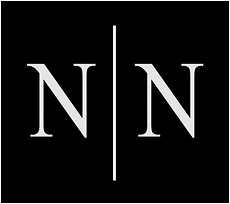
Relieve TMJ Pain With Simple Treatments
It is estimated that 60-80% of the US population will experience some form of TMJ pain/dysfunction at some point in their lifetime. This number may be even higher in big cities like Los Angeles where life can often be stressful and fast paced. Fortunately, there are many non-invasive strategies that can be used to fix TMJ problems and prevent future issues from arising.
What is TMJ?
The TMJ (temporomandibular joint) enables jaw movements such as chewing, yawning, or speaking. Chewing muscles are also involved in those movements, otherwise known as masticatory muscles. If these components do not function together correctly, then it can lead to disorders of TMJ that exhibit symptoms like jaw pain, difficulty opening or closing your jaw, and clicking/popping noises coming from the TMJ when you try to move your jaw.
What Are the Contributing Factors?
TMJ disorders can arise from multiple reasons that usually involve either problems with the joint itself or adjacent muscles. Some of the most frequent causes include:
- Misaligned Jaw: If the upper and lower teeth do not properly align, excessive pressure is placed on the jaw joint.
- Grinding teeth or clenching them: This habit creates an excess load on TMJ, resulting in swelling and pain.
- Articular Rheumatism: TMJ pain and limited mobility can be brought about by swelling from rheumatism.
- Mandibular trauma: Hitting your head or face might affect the temporomandibular joint, leading to complications later on.
- Tension: Under stress, one would either clench their jaw or contract facial muscles, thereby overworking the temporomandibular joint.
Not Sure You Have Tmj Disorder? Here Are Some Things to Look for:
- Have you ever had a history of neck, head, or jaw injuries?
- Do you have a history of arthritis?
- Do your teeth come together comfortably when you bite?
- Do you ever experience a dull achy pain in your jaw?
- Are you prone to tension headaches?
- Do your facial muscles feel tender when you press on them?
- Does it ever feel like your jaw gets locked in an open or closed position throughout the day? Or, do you wake up in the morning feeling like it is tough to open your jaw?
- Does your jaw make clicking or popping sounds when you open/close your mouth?
- Do you have increased sensitivity to cold in your teeth? Or, do you wake up some mornings with pain on one or both sides of your mouth?
If you answered ‘yes’ to any of the above questions, you should be seen for a consultation as soon as possible to be evaluated for TMJ disorder. The longer this condition goes untreated the more ‘chronic’ and difficult to treat it becomes.
How to Prevent and Manage TMJ Disorders
Luckily, there is a lot we can do to help manage TMJ pain and dysfunction using minimally invasive techniques.
- Night guard: A night guard is one of the simplest and most effective ways to treat TMJ disfunction. It protects your teeth and prevents chipping/cracking that can be caused by bruxism.
- Botox: Botox can be an extremely useful therapy to help relax tense muscles and relieve trigger points.
- Hot/Cold therapy: Alternating hot/cold compression helps to ease tension in jaw muscled.
- Relax: It is much easier said than done, however, being able to relax and breathe every once in a while can work wonders when it comes to relieving jaw pain and tension.
Do you want a remedy for TMJ pain? Make an appointment with Dr. Nalbandian today to explore your customized treatment options.

